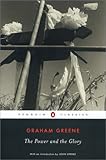
 I’m in the middle of the most recent National Book Award winner The Great Fire by Shirley Hazzard. It’s an oppressive book both in style and content. Each description comes with an aside or a qualification. When one character, a young Australian soldier, relieves himself on the side of the road during a break in a drive across the Japanese countryside, Hazzard describes it this way: “The young driver, profiting from the hiatus, had meanwhile peed behind bushes.” Everywhere there are these odd little inclusions like “profiting from the hiatus.” The book is about the occupation of a shattered, destroyed, and conquered place, specifically the Allied occupation of post-war Japan. There is still everywhere the lingering hysteria of war, which Hazzard, like the occupiers she describes, tries to forget or ignore by imposing a false civility on the situation. The interplay of the conquered and the conquerors thus leads to dense language and curious juxtaposition. The Great Fire reminds me a lot of what was probably the first truly difficult book I ever read, Graham Greene‘s, The Power and the Glory. In that book, the “civilized” is a priest and the uncivilized is the tropical criminality of Mexico. Luis Bunuel once suggested to Alvaro Mutis, purveyor of his own brand of magical realism and author of the incomparable The Adventures and Misadventures of Maqroll, that it is not possible to write a gothic novel that is set in the tropics. Mutis supposedly refuted this by writing The Mansion & Other Stories, though I can’t comment because (as of yet) I have been unable to lay my hands on that book. So, at this point, I would have to agree with Bunuel. In order to invoke the tropics one must also invoke the oppressiveness of the conditions there; content dictates style, which brings me back to The Great Fire. Though the book is not set in the tropics, its setting is oppressive, and thus so is the writing. And though I’m only a little ways into the book, it doesn’t seem like this is a bad thing.
I’m in the middle of the most recent National Book Award winner The Great Fire by Shirley Hazzard. It’s an oppressive book both in style and content. Each description comes with an aside or a qualification. When one character, a young Australian soldier, relieves himself on the side of the road during a break in a drive across the Japanese countryside, Hazzard describes it this way: “The young driver, profiting from the hiatus, had meanwhile peed behind bushes.” Everywhere there are these odd little inclusions like “profiting from the hiatus.” The book is about the occupation of a shattered, destroyed, and conquered place, specifically the Allied occupation of post-war Japan. There is still everywhere the lingering hysteria of war, which Hazzard, like the occupiers she describes, tries to forget or ignore by imposing a false civility on the situation. The interplay of the conquered and the conquerors thus leads to dense language and curious juxtaposition. The Great Fire reminds me a lot of what was probably the first truly difficult book I ever read, Graham Greene‘s, The Power and the Glory. In that book, the “civilized” is a priest and the uncivilized is the tropical criminality of Mexico. Luis Bunuel once suggested to Alvaro Mutis, purveyor of his own brand of magical realism and author of the incomparable The Adventures and Misadventures of Maqroll, that it is not possible to write a gothic novel that is set in the tropics. Mutis supposedly refuted this by writing The Mansion & Other Stories, though I can’t comment because (as of yet) I have been unable to lay my hands on that book. So, at this point, I would have to agree with Bunuel. In order to invoke the tropics one must also invoke the oppressiveness of the conditions there; content dictates style, which brings me back to The Great Fire. Though the book is not set in the tropics, its setting is oppressive, and thus so is the writing. And though I’m only a little ways into the book, it doesn’t seem like this is a bad thing.








